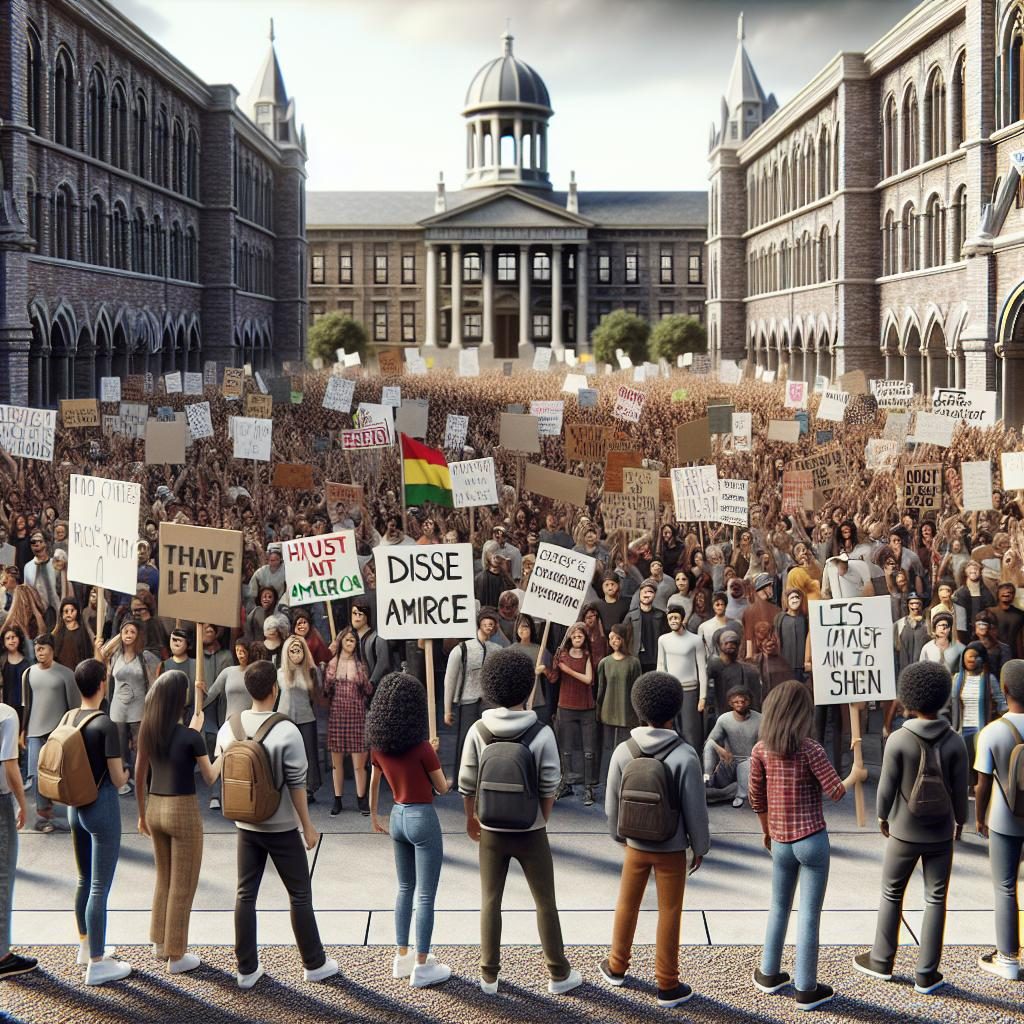Columbia, South Carolina: A Campus Divided Over Upcoming Hate Speech Event
In a significant and concerning event set to unfold at the University of South Carolina (USC), various student groups are voicing their dissent against a rather controversial “roast” of Vice President Kamala Harris. Taking place at the Russell House on September 18, this event is organized by a student organization called Uncensored America, which claims to advocate for freedom of speech. However, the choice of hosts for this roast has many concerned.
What’s Happening?
Hosted by the far-right figures Gavin McInnes and Milo Yiannopoulos, the event is stirring up a storm. McInnes, known as a founder of the Proud Boys—designated as a hate group by the Southern Poverty Law Center—continues to be a divisive figure. Yiannopoulos, infamous for his inflammatory remarks, holds views that many deem misogynistic, racist, and transphobic.
In response, the USC chapter of the NAACP took to Instagram, declaring, “We stand united against any and all forms of racism and injustice.” They, along with over 20 student organizations, have banded together to condemn this roast, labeling it as “hurtful” to the university’s student body.
Who’s Saying What?
The united front of student groups includes notable organizations such as the University of South Carolina Columbia Chapter of the National Association of Black Journalists, Every Black Girl Club, and The Black Business Student Association. They issued a statement expressing their surprise and disappointment that USC would allow a platform for those who promote hate speech.
In their statement, they referred to the Carolinian Creed, which emphasizes the importance of dignity and respect for all individuals. They urged the university to take meaningful action to ensure the campus reflects these values, pleading for a supportive and inclusive community for everyone.
The University’s Response
Interestingly, a university spokesman opted not to comment directly on these concerns, and there are no immediate reports on how ticket sales for the roast are progressing. Meanwhile, the NAACP has reached out directly to USC President Michael Amiridis, contending that the event contravenes university policy. They argue that the promotional materials for the event may even violate South Carolina’s obscenity laws.
In addressing the situation, the university leadership has maintained a stance on upholding the First Amendment rights of students, asserting that censoring hate speech does not resolve societal issues. However, local representatives and alumni are speaking out, stating that it is vital for the university to consider the potential consequences of allowing such figures to speak on campus.
Community Concern
Local leaders, including Democrats such as Rep. Leon Howard and Sen. Tameika Isaac Devine, have expressed their outrage over the event. They emphasize that while freedom of speech is important, exposing students to hate speech creates a hostile environment.
Adding to the voices of concern, Jokata Eaddy, a former student body president, criticized the university’s decision to host the roast, asserting it goes against what USC represents.
Student Activism
In light of the upcoming event, a petition created by USC alumna Courtney McClain has garnered significant attention, with nearly 25,000 signatures calling for the cancellation of the roast. McClain stated that she and other students have faced harassment online since launching the petition, demonstrating the heated emotional climate surrounding this issue.
While the university has acknowledged the “vile and juvenile rhetoric” surrounding the event, it has stated that as a public institution, it must allow the gathering. With tensions rising and voices on all sides expressing strong opinions, the eyes of the community remain fixed on how this situation will unfold.
A Divided Campus
As the date of the roast approaches, it is clear that Columbia’s USC campus is at a crossroads, torn between freedom of expression and the safety and well-being of its students. The hopeful sentiment shared by many is that the university will acknowledge the serious concerns of its students and work to cultivate an environment that truly upholds the dignity and respect embodied in the Carolinian Creed.







